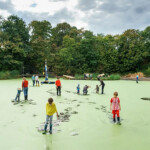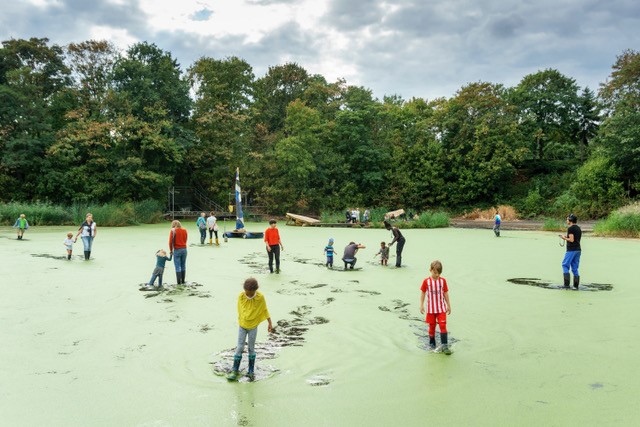Podcast

Architecture, as a biopolitical and normalizing technique, participates in constructing distinctions and categories. The work of architects oozes Cartesianism. It produces differential social spaces that either facilitate or prevent their encounter of bodies and their movement. For the work of architects often involves drawing abstract, assertive lines that define insides, outsides, ups and downs. Lines that support historical forms of exclusion, and discrimination. Yet, these capabilities, I would argue, could also be deployed to dismantle the boundaries that currently define, enclose, and exploit the world and the common interest; the boundaries on compassion; the compartmentalization and instrumentalization of relations. This, in turn, requires imagining other architectures to come. A non-Cartesian architecture that might not be designed to quantify, control, categorize. An architecture difficult to describe under dual categories. An architecture for the encounter and assemblage between animals, humans, plants, machinic and inanimate beings. An architecture of radical hospitality.
Part of Episode XI: “Architectures of Hospitality”
With Merve Bedir, Benjamin Foerster-Baldenius / raumlabor berlin, Marina Otero Verzier & Florian Malzacher
20. November 2021 – brut Vienna / Austria
In collaboration with Goethe Institut: Performing Architecture
Biography
Marina Otero Verzier is director of research at Het Nieuwe Instituut and head of the MA in Social Design at Design Academy Eindhoven. Alongside the direction of research projects and curation of exhibitions at Het Nieuwe Instituut since 2015, Otero has been a curator at the Shanghai Art Biennial 2021, curator of the Dutch Pavilion at the Venice Architecture Biennale in 2018, and chief curator of the 2016 Oslo Architecture Triennale. She has co-edited Lithium (2021) More-than-Human (2020), Unmanned: Architecture and Security Series (2016-20), Architecture of Appropriation (2019), Work, Body, Leisure (2018), and After Belonging (2016), among others. Long term research projects include Automated Landscapes (focusing on emerging architectures of automated labour) and BURN-OUT. Exhaustion on a planetary scale (instigating other forms of coexistence and care for multispecies, collective bodies). Otero studied at TU Delft and ETSA Madrid and Columbia University GSAPP. In 2016, Otero received her PhD at ETSA Madrid. Her PhD thesis Evanescent Institutions (2016) examines the emergence of new paradigms for institutions, and in particular the political implications of temporal and itinerant structures.
Literature
- Achille Mbembe, Critique of Black Reason (Durham,.NC: Duke University Press, 2017).
- Carol J Adams, “The War on Compassion,” in Patricia MacCormack (ed.) The Animal Catalyst: Towards Ahuman Theory (London: Bloomsbury, 2014).
- Patricia MacCormack, “After Life,” in Patricia MacCormack (ed.) The Animal Catalyst: Towards Ahuman Theory(London: Bloomsbury, 2014)
- Marisol de la Cadena, Earth Beings: Ecologies of Practice across Andean Worlds (Durham: Duke University Press, 2015).
- Emanuele Coccia The Life of Plants: A Metaphysics of Mixture (Cambridge: Polity Press, 2019).
- Marina Otero Verzier, Introduction, Work, Body, Leisure (Het Nieuwe Instituut and Hatje Cantz,2018).
- Marina Otero Verzier, Cartesian Enclosures, New Geographies 12 ‘Commons’, edited by Mojdeh Mahdavi and Liang Wang, Harvard University Press, 2021.
- Wet-togetherness, Shanghai Art Biennial 2020-21.
Mark Wigley, Constant’s New Babylon: The Hyper-architecture of Desire ( 010 Publishers, 1998).
Mark Wigley, Constant Dialogue, Work, Body, Leisure (Het Nieuwe Instituut and Hatje Cantz,2018).




